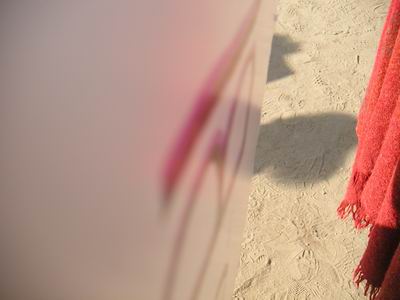The beautiful city of Dresden is going to be alright.
No, not alright, it's going to be as spectacular as it ever was.
The Zwinger Museum, flooded this summer, has reopened, with 400 paintings, including works by Titian and Rubens, stacked against the walls 10 deep, "like Andy Warhol reproductions in a poster shop." [They won't be returned to storage in the cellars, out of fear of future floods, so they await a new or converted building and a new rest above ground.]
The Semper Opera is being repaired at a cost of tens of millions of euros, but has already seen a production of the ballet, "Swan Lake." It was still impossible to use the house for full opera, so the latest production is being staged in a factory, but not just any factory.
When the star bullfighter in "Carmen" makes his triumphant entrance in the back seat of a Volkswagen, one could dismiss it as a cheeky updating of Bizet's classic.
But then the Volkswagen shift workers in white overalls, installing drivetrains and dashboards on an assembly line behind the orchestra, signal that this is no ordinary night at the opera.
Flushed out of its 19th-century opera house by the calamitous floods of last summer, the Semper Oper of Dresden is staging its latest production in an automobile factory a shimmering glass-and-steel edifice in which the newest VW, a luxury sedan called the Phaeton, is assembled.
"We didn't choose to do `Carmen' because of the name," said the opera's artistic director, Hans- Joachim Frey, though the poster for the production, with "car" and "men" in different colors, is an obvious wordplay.
VW's rival, DaimlerChrysler, is the opera's main sponsor, but the firm was more than happy to suspend its rivalry for the run of "Carmen." The factory continues its operation without interruption throughout the performance.
It was also a chance for Volkswagen to show off its $180 million assembly plant, which opened last December. Built in downtown Dresden, with glass walls, oak and maple floors and a soaring central foyer, it looks less like a factory than an industrial cathedral. Potential buyers can watch the cars being assembled from a circular bank of windows overlooking the line.
For the duration of the opera engagement, which ends on Friday, the foyer has been filled with 450 seats and a stage, festooned with posters of bullfights. The orchestra is seated to the left of the stage, underneath giant soundproof windows that show half-finished cars rolling silently by.
Harry Kupfer, the German director who staged this "Carmen," made full use of the factory's dramatic design, filling the balconies with a chorus and sending his players up and down staircases. In a nod to his host, he wrote in a cameo role for the Phaeton, as well as for a vintage VW bus.
Stefan Schulte, the head of sales and marketing for the Volkswagen Phaeton, said, "The opera people keep asking if we're building better cars. I tell them, 'Sure, because of your beautiful music.'"
